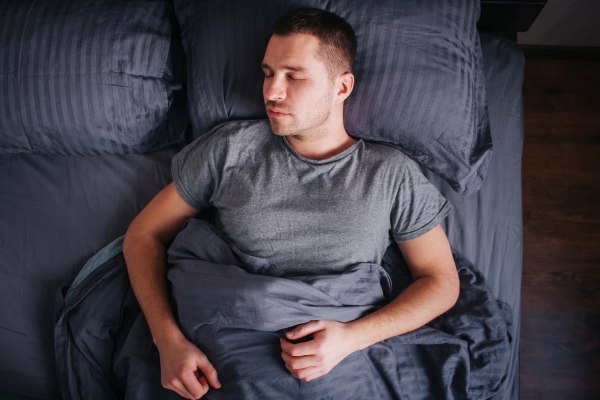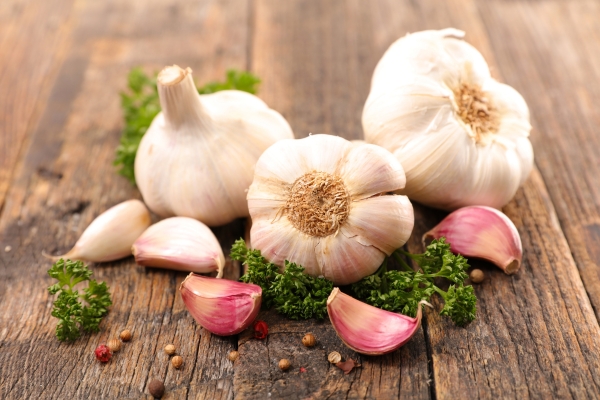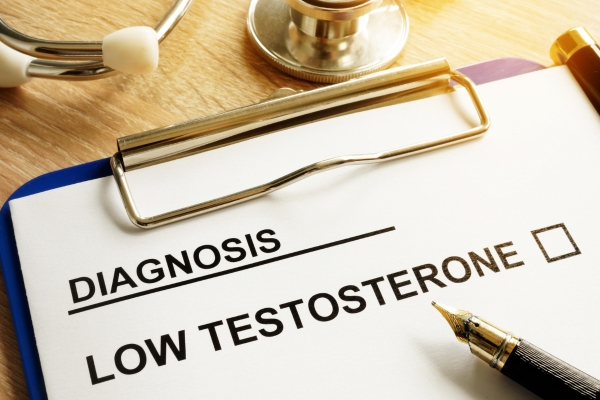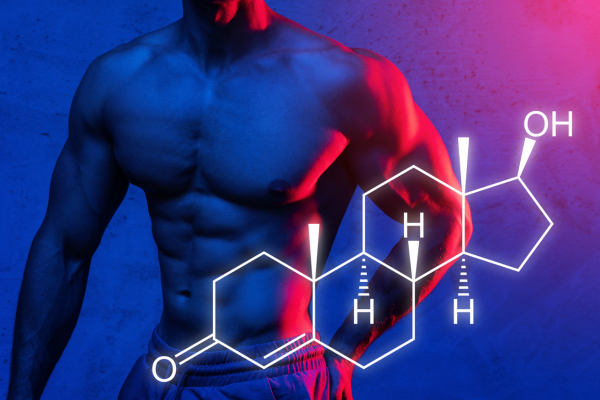Is your testosterone tanking without you knowing? Tried boosting it with no success?
Forget everything you’ve heard.
Testosterone isn’t just about muscles and a deep voice.
It’s vital for energy, mood, and overall health.
Here’s the kicker: mainstream advice like lifting weights and eating broccoli is just the beginning.
What if chugging garlic juice or taking ice-cold showers could skyrocket your testosterone?
Yes, really.
These unconventional tips might just change your life.
And the ultimate shocker? A crazy simple trick hiding in plain sight.
Get ready to supercharge your testosterone with these nine unique methods.

1. Stop Stressing
Stress sucks.
Not only does it affect your mood, but it can also zap your T-levels. [1]
But laughing more can help.
Laughing has been shown to reduce stress, improve mood, and enhance social connections, all of which can positively influence hormone levels, including testosterone.
Reduces Stress: Laughter reduces the production of cortisol, the stress hormone that can negatively impact testosterone levels.
Boosts Endorphins: Laughing releases endorphins, the body’s natural feel-good chemicals, which can help maintain a positive hormonal balance.
Improves Blood Flow: Laughter enhances blood circulation, ensuring that hormones are efficiently delivered to their target organs.
Promotes Relaxation: A good laugh relaxes the whole body, relieving physical tension and stress, which can help maintain higher testosterone levels.
How to Incorporate More Laughter into Your Life
Here’s how to stress less and laugh more:
Watch Comedies: Spend time watching funny movies, TV shows, or stand-up comedy specials.
Surround Yourself with Humor: Spend time with friends or family members who make you laugh, and share jokes and funny stories.
Read Humorous Books: Choose books or articles that make you laugh and lighten your mood.
Attend Comedy Events: Go to live comedy shows or open mic nights to enjoy laughter in a social setting.

2. Cold Showers
When you expose your body to cold water, it stimulates the production of norepinephrine, a hormone that helps increase alertness and energy.
This stress response triggers a surge in testosterone production as the body works to maintain homeostasis.
Cold exposure also reduces inflammation and oxidative stress, creating an optimal environment for testosterone synthesis.
Additionally, cold showers improve blood flow, ensuring that essential nutrients and hormones reach their target organs more efficiently.
Steps to Gradually Adapt to Cold Showers
It might not sound fun, but you can quickly adapt to cold showers by following these steps:
Start Warm: Begin with a warm shower and gradually reduce the temperature over the last 1-2 minutes.
Short Bursts: Initially, limit cold exposure to short bursts (20-30 seconds) and slowly increase the duration over time.
Deep Breathing: Practice deep breathing to help manage the shock of the cold water and stay calm.
Focus on Extremities: Start by exposing your feet, hands, and face to cold water before progressing to your entire body.

3. Get More Sunshine
Research indicates that men with adequate vitamin D levels often experience higher testosterone levels than those who are deficient.
Vitamin D acts like a steroid hormone in the body, influencing various processes, including the production of testosterone. [2]
Ways to Get More Vitamin D
Here’s how to get more Vitamin D:
Sun Exposure: Soaking up the midday sun for 10-30 minutes a few times a week is a highly effective way to increase your vitamin D levels. Adjust your sun exposure based on your skin type and where you live.
Supplements: If you live in an area with limited sunlight or have difficulty getting enough sun exposure, vitamin D supplements can be an effective alternative. Look for vitamin D3 supplements, as they are more effective at raising blood levels of vitamin D.
Dietary Sources: Add vitamin D-rich foods to your meals, including options like salmon, mackerel, egg yolks, fortified dairy products, and sun-exposed mushrooms.

4. Get More (and Better) Sleep
Quality sleep is essential for maintaining healthy hormone levels, including testosterone.
During deep sleep, the body repairs itself and produces vital hormones.
Testosterone production peaks during REM sleep, so inadequate or poor-quality sleep can significantly reduce testosterone levels, leading to decreased energy, mood swings, and reduced muscle mass.
For optimal testosterone levels, aim for 7-9 hours of quality sleep each night.
Studies have shown that sleeping less than 5 hours can reduce testosterone levels by up to 15%, while consistently getting 7-9 hours supports overall health and hormone production. [3]
Tips for Improving Sleep Hygiene
Prioritizing sleep is a simple yet powerful way to naturally boost your testosterone levels.
Here’s how to master your sleep routine:
Stick to a Schedule: Stick to a consistent sleep schedule, going to bed and waking up at the same time daily, including weekends. This routine helps synchronize your body’s internal clock.
Develop a Soothing Pre-Sleep Ritual: Ease into bedtime with peaceful activities like enjoying a good book, soaking in a warm bath, or doing some gentle meditation.
Optimize Your Sleep Environment: Ensure your bedroom is cool, dark, and quiet. Consider using blackout curtains, earplugs, or a white noise machine.
Cut Back on Screen Use: Minimize your time on electronic devices at least an hour before bedtime to prevent blue light from disrupting melatonin production and affecting your sleep.
Watch Your Diet: Steer clear of large meals, caffeine, and alcohol in the hours leading up to bedtime. If you need a bite, choose a light snack instead.
Exercise Regularly: Engaging in regular physical activity can help you fall asleep more quickly and achieve deeper sleep. However, it’s best to avoid intense workouts close to bedtime.

5. Consume Plenty of Garlic
A study on rats revealed that garlic supplementation, when combined with a high-protein diet, leads to higher testosterone levels in the testes and lower plasma corticosterone concentrations.
Specifically, garlic powder (0.8 g/100 g) significantly increased testosterone and decreased corticosterone in rats fed diets with 40% and 25% casein.
Additionally, the high-protein garlic group showed increased levels of certain substances in their urine and liver, indicating that their bodies were better at using and building proteins, which is crucial for muscle growth and overall health.
Furthermore, the study identified diallyldisulfide, a major sulfur-containing compound in garlic, as a key player in this process.
Diallyldisulfide was discovered to progressively enhance the release of luteinizing hormone (LH) from the pituitary gland based on dosage.
LH regulates testosterone production in the testes, suggesting that garlic boosts testosterone by influencing LH levels. [4]
Easy Ways to Incorporate Garlic into Your Diet
Here are some simple tricks to getting more garlic into your daily routine:
Raw Garlic: Add minced raw garlic to salads, dressings, or dips for a potent dose of its benefits.
Cooked Dishes: Incorporate garlic into soups, stews, stir-fries, and sauces.
Garlic Supplements: Consider taking garlic supplements if you prefer not to consume it in food.
Garlic Tea: Brew garlic tea by steeping crushed garlic cloves in hot water, adding lemon and honey for flavor.
Garlic Butter: Prepare garlic butter by blending finely chopped garlic with softened butter, then use it as a spread on bread or as a topping for vegetables.

Wrap-Up
Boosting your testosterone doesn’t have to be a struggle.
While traditional methods like weightlifting and balanced diets are effective, stepping outside the box can yield impressive results.
From laughing more and cold showers to soaking up more sunlight and optimizing your sleep, these strategies can significantly impact your testosterone levels.
And let’s not forget the crazy simple trick: adding more garlic to your diet can naturally elevate your testosterone.
Give these wild methods a try and discover the difference they can make in your life.
References
Hormone and Metabolic Research
Pilz S, Frisch S, Koertke H, Kuhn J, Dreier J, Obermayer-Pietsch B, Wehr E, Zittermann A. Effect of vitamin D supplementation on testosterone levels in men. Horm Metab Res. 2011 Mar;43(3):223-5. doi: 10.1055/s-0030-1269854. Epub 2010 Dec 10. PMID: 21154195.
JAMA
Leproult R, Van Cauter E. Effect of 1 week of sleep restriction on testosterone levels in young healthy men. JAMA. 2011 Jun 1;305(21):2173-4. doi: 10.1001/jama.2011.710. PMID: 21632481; PMCID: PMC4445839.
The Journal of Nutrition
Oi Y, Imafuku M, Shishido C, Kominato Y, Nishimura S, Iwai K. Garlic supplementation increases testicular testosterone and decreases plasma corticosterone in rats fed a high protein diet. J Nutr. 2001 Aug;131(8):2150-6. doi: 10.1093/jn/131.8.2150. PMID: 11481410.

